How To Replace 15 Household Products With Castile Soap…...
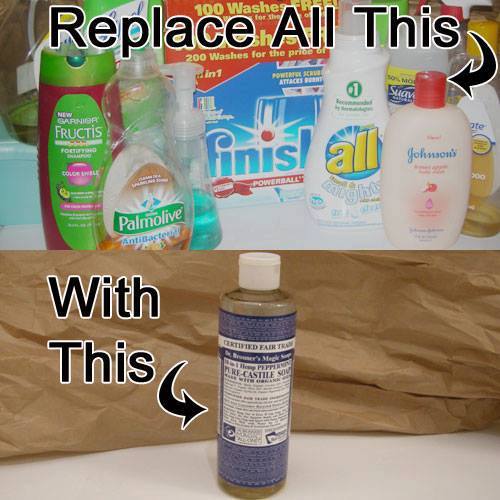
How To Replace 15 Household Products With Castile Soap… http://www.herbsandoilsworld.com/replace-15-household-products-with-castile-soap/
Monsanto tomato
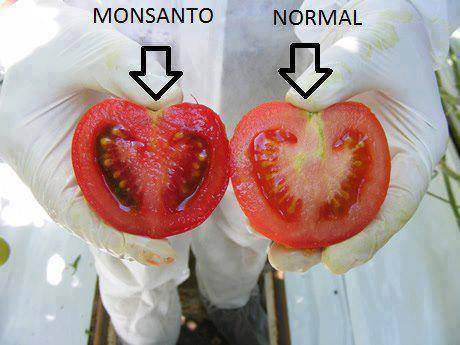
Monsanto tomato
Top 10 GMO foods ( Natural News )1. Corn - Corn has been...
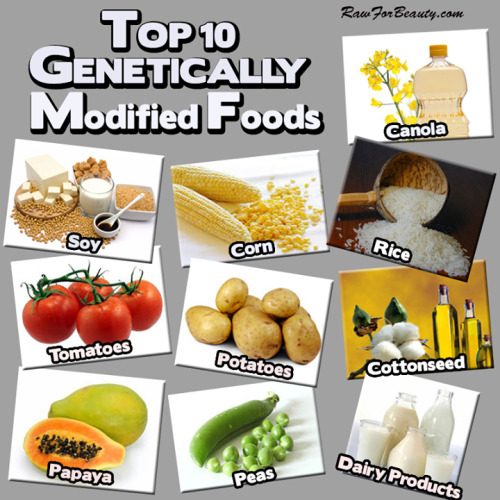
Top 10 GMO foods
( Natural News )1. Corn - Corn has been modified to create its own insecticide. The U.S. Food and Drug Administration (FDA) has declared that tons of genetically modified corn has been introduced for human consumption. Monsanto has revealed that half of the US's sweet corn farms are planted with genetically modified seed. Mice fed with GM corn were discovered to have smaller offspring and fertility problems.
2. Soy - Soy has also been genetically modified to resist herbicides. Soy products include soy flour, tofu, soy beverages, soybean oil and other products that may include pastries, baked products and edible oil. Hamsters fed with GM soy were unable to have offspring and suffered a high mortality rate. Canola
3. Cotton - Like corn and soy, cotton has been designed to resist pesticides. It is considered food because its oil can be consumed. Its introduction in Chinese agriculture has produced a chemical that kills cotton bollworm, reducing the incidences of pests not only in cotton crops but also in neighboring fields of soybeans and corn. Incidentally, thousands of Indian farmers suffered severe rashes upon exposure to BT cotton.
4. Papaya - The virus-resistant variety of papaya was commercially introduced in Hawaii in 1999. Transgenic papayas comprised three-fourths of the total Hawaiian papaya crop. Monsanto bestowed upon Tamil Nadu Agricultural University in Coimbatore technology for developing papaya resistant to the ringspot virus in India.
5. Rice - This staple food from South East Asia has now been genetically modified to contain a high amount of vitamin A. Allegedly, there are reports of rice varieties containing human genes to be grown in the US. The rice will create human proteins useful for dealing with infant diarrhea in the 3rd world. China Daily, an online journal, reported potential serious public health and environment problems with genetically modified rice considering its tendency to cause allergic reactions with the concurrent…
Dolphins Help Save Dog from Drowning! On Marco Island, Florida...

Dolphins Help Save Dog from Drowning!
On Marco Island, Florida a group of dolphins came to the aid of a lost Dog that had fallen into a canal and couldn't get out. The dolphins made so much noise, it attracted the attention of people living nearby, who then rescued the dog.
The Dog was believed to have spent 15 hours in the canal water before he was pulled out by fire personnel and reunited with his owner.
One of the people whose attention was captured by the noisy, demonstrative dolphins said, "They were really putting up a ruckus, almost beaching themselves on the sandbar over there. If it wasn't for the dolphin, I would have never seen the dog."
He said also if the dolphins hadn't persisted enough to get their attention, they dog would have died in the canal.
The dog had fallen over the edge of a concrete wall down into the water far enough that it had no chance of getting back up by itself. The dog was exhausted from being in the cold water for hours, and most likely suffering from hypothermia.
Dolphins have been known to sometimes help stranded or injured people as well. In 2007, a pod of dolphins formed a ring around a surfer who was injured and bleeding after being bitten by a Great White shark.
The surfer survived because they prevented further bites. No one knows exactly why dolphins have intervened in such emergency situations, and helped save the lives of other species. Suffice to say they are capable of empathy and heroic actions.
Is your deodorant toxic?
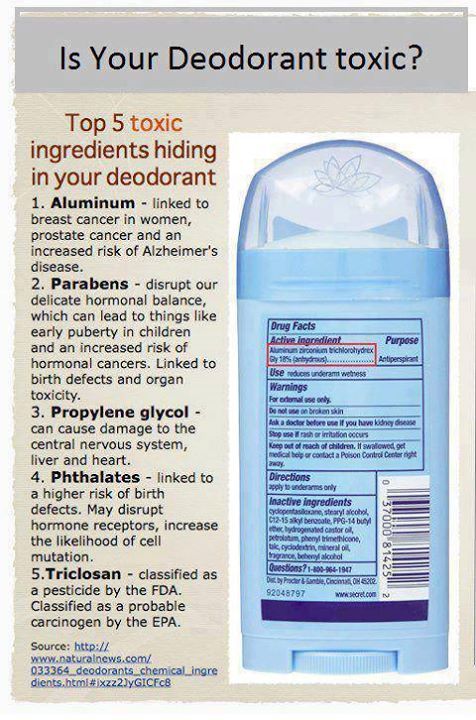
Is your deodorant toxic?
Monsanto has been banned….
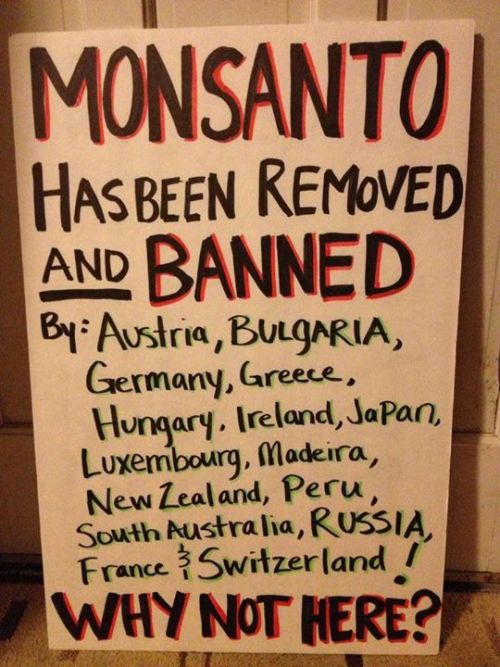
Monsanto has been banned….
MarchAgainstMonsanto.com
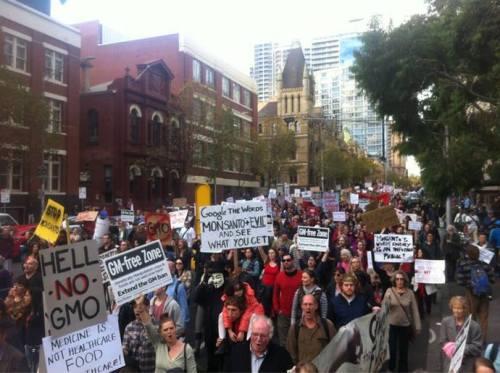
MarchAgainstMonsanto.com
Monsanto
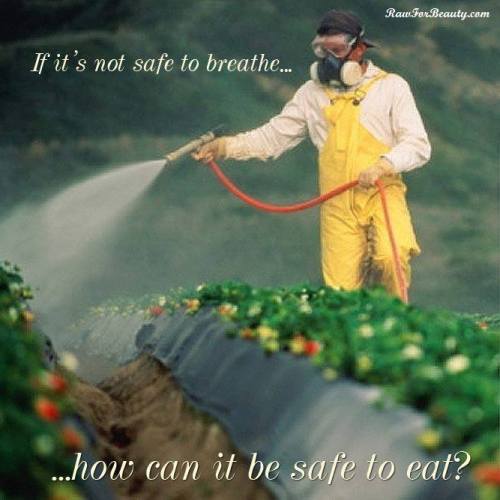
Monsanto
Cinnamon oil
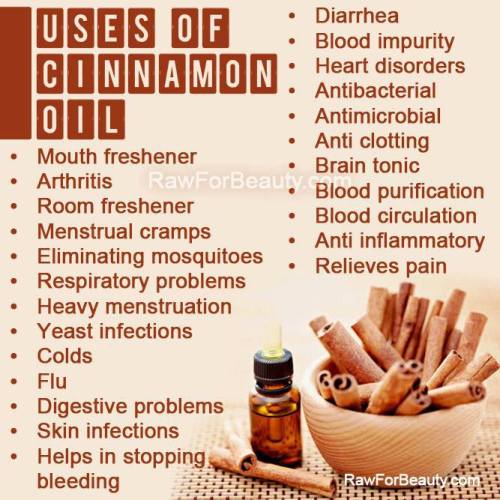
Cinnamon oil
Save our monarchs
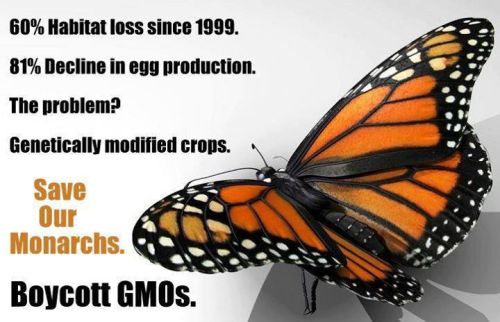
Save our monarchs
Revolution will not be televised
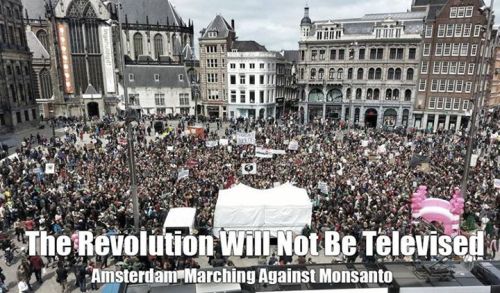
Revolution will not be televised
A French farmer who can no longer perform his routine farming...
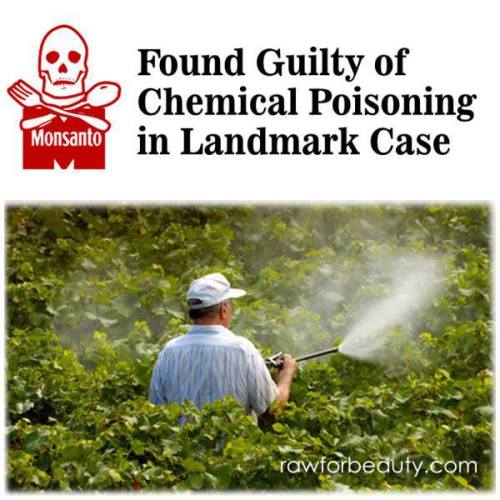
A French farmer who can no longer perform his routine farming duties because of permanent pesticide injuries has had his day in court, literally, and the perpetrator of his injuries found guilty of chemical poisoning. The French court in Lyon ruled that Monsanto's Lasso weedkiller formula, which contains the active ingredient alachlor, caused Paul Francois to develop lifelong neurological damage that manifests as persistent memory loss, headaches, and stuttering during speech.
Reports indicate that the 47-year-old farmer sued Monsanto back in 2004 after inhaling the Lasso product while cleaning his sprayer tank equipment. Not long after, Francois began experiencing lasting symptoms that prevented him from working, which he says were directly linked to exposure to the chemical. Since Lasso's packaging did not bear adequate warnings about the dangers of exposure, Francois alleged at the time that Monsanto was essentially negligent in providing adequate protection for its customers.
To the surprise of many, the French court agreed with the claims and evidence presented before it, declaring earlier this year that "Monsanto is responsible for Paul Francois' suffering after he inhaled the Lasso product … and must entirely compensate him." The court is said to be seeking expert opinion on how to gauge Francois' losses in order to determine precisely how much Monsanto will be required to compensate him in the case.
"It is a historic decision in so far as it is the first time that a (pesticide) maker is found guilty of such a poisoning," said Francois Lafforgue, Paul Francois' lawyer, to Reuters earlier in the year.
According to the U.S. Environmental Protection Agency (EPA), exposure to alachlor can cause damage to the liver, kidneys, spleen, and eyes, and may lead to the development of anemia and even cancer. The EPA apparently views alachlor as so dangerous, in fact, that the agency has set the maximum contaminant level goals (MCLG) for alachlor to zero in order to "prevent potential health problems." (http://water.epa.gov/drink/contaminants/basicinformation/alachlor.cfm)
In 2007, France officially banned Lasso from use in the country in accordance with a European Union (EU) directive enacted in 2006 prohibiting the chemical from further use on crops in any member countries. But despite all the evidence proving that alachlor can disrupt hormonal balance, induce reproductive or developmental problems, and cause cancer, the chemical is still being used on conventional crops throughout the U.S. to this very day. (http://www.pesticideinfo.org/Detail_ChemReg.jsp?Rec_Id=PC35160) read more.. http://www.naturalnews.com/037465_Monsanto_chemical_poison ing_court_case.html
Papaya
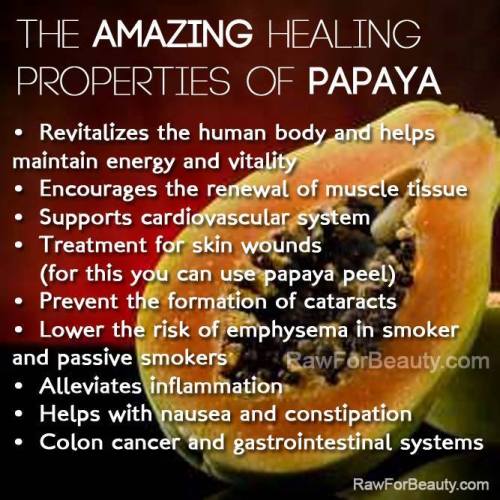
Papaya
Love, respect, and compassion to all creatures great and small
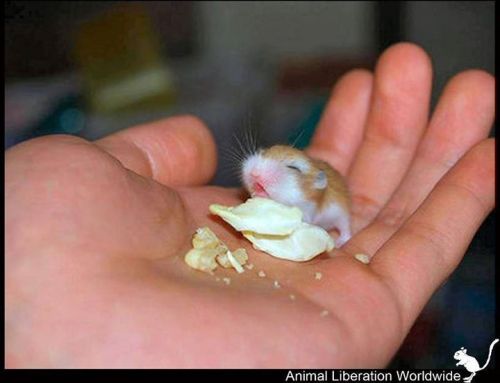
Love, respect, and compassion to all creatures great and small
Good morning world

Good morning world
Just me and the vegan bodies I built! -Marcella Torres
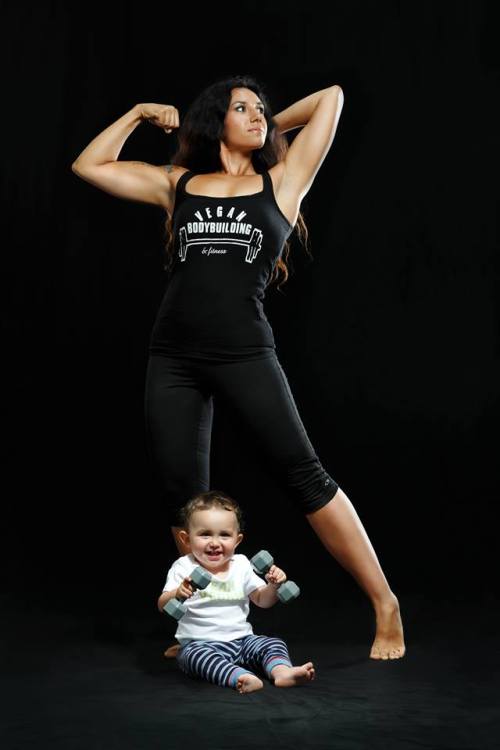
Just me and the vegan bodies I built! -Marcella Torres
What if i'm vegetarian, but not vegan?
I think vegetarianism is admirable and inspiring.
Veganism not only ensures a greater reduction of cruelty on this planet than any other measure you could take; it also prevents, treats or cures heart diseases (strokes and heart attacks), cancers (prostate, colon, breast, ovarian and pancreatic), kidney disease, diabetes, osteoporosis, high blood pressure, obesity, asthma and impotence, just to name a few. According to Dr. T. Colin Campbell's China Study, the world's largest dietary study ever conducted, vegans have less than a 5 percent chance of getting one of the aforementioned ailments.
Campbell acknowledges that more than 50 percent of the world's meat, dairy and egg-eaters will have a non-genetically-induced heart attack or stroke caused by the consumption of animal protein, casein, cholesterol, sugar, the excessive amount of fat found in all animal products and oils, the excessive amount of refined carbohydrates found in white rice, white bread, and pasta, human-made trans fatty acids found in junk food, and the 2-9 percent of naturally-occurring trans-fatty acids found in meat and dairy (the previous trans-fatty acids study appears at the end of this page). Non-dietary factors affect heart health, too. Stress, a lack of sleep, smoking tobacco and a lack of exercise can wreak havoc on the body. Therefore, it is essential to eat plant-based foods exclusively, and control the non-dietary factors to the best of your ability.
If the heart disease news isn't bad enough, around 20 percent of meat, dairy and egg-eaters now have some version of diabetes even though this disease could be treated, controlled or cured with cardio exercise and a low-fat, low-sugar, low-refined-carbohydrate vegan diet. As you regain control of your blood sugar, you will probably have to continue taking insulin shots for a time. However, within one year, you should be able to do away with insulin completely! (Pig serum used to be the key ingredient in insulin until doctors discovered it exacerbated foot neuropathy and ocular issues. All insulin is now made synthetically using human insulin.)
Animal protein also leads to osteoporosis and is the main reason why 1 in 3 meat, dairy and egg-eaters get cancer! Animal protein is way too acidic for the herbivorous human body (read the Humans Are Herbivores section). And cancer can only live and thrive in an acidic environment. The only foods that make human blood and tissues acidic are meat, cheese, milk and eggs. Plant protein is not acidic. Animal protein contributes to the acceleration of osteoporosis because keeping blood and tissues at a neutral Ph balance always takes priority over keeping calcium-phosphate in the bones. Bones can hold out for years with insufficient calcium, but blood and tissue cannot because they need phosphate to offset the acidity. When the body becomes acidic with animal protein, it withdraws calcium-phosphate from the bones and uses the alkaline mineral phosphate to keep the Ph levels of blood and tissues balanced. The calcium is then excreted through our urine. Epidemiological evidence proves that people who consume the least amount of animal protein always have the lowest rates of osteoporosis, bone fractures and cancers (and other diseases). People need to stop pretending that animal products are healthy. If it contains cholesterol, casein, an excessive amount of fat, trans-fatty acids and animal protein, it is unhealthy. I'm still looking for the first medical report in history that can indict broccoli, bananas or asparagus as a cause of illness. Here are some studies that discuss the negative impact of animal protein: http://notmilk.com/o.html and www.thechinastudy.com/la-timesarticle.html.
Contrary to the misinformation spewed forth by uninformed people, there is no shortage of protein in a vegan diet. All amino acids are found in the plant kingdom with alfalfa sprouts, almonds, bananas, bean sprouts, brazil nuts, broccoli, cabbage, carrots, coconuts, corn, dates, eggplant, filberts, goji berries, okra, pecans, soy, spirulina (seaweed), squash, sunflower seeds, sweet potatoes, tempeh (fermented soy), tomatoes, walnuts and wheatgrass being complete proteins. However, consuming all amino acids at one meal is unnecessary. Meat, dairy and egg-eaters receive NO benefit from eating complete animal-based proteins except having a complete chance at cancer, osteoporosis and a host of other ailments. Cauliflower and broccoli are 40 percent protein while most other vegetables contain around 30 percent protein. Beans, brown rice, cacao/chocolate (genuine cacao/chocolate is a bean so it's naturally vegan), grains (all), hemp (milk/oil/powder/seed), lentils, lucuma (powder), maca (powder), mesquite (powder), non-dairy milks, nuts, seeds and all veggie meats are great sources of protein, too. Even fruit has around 5 percent protein, which is the same amount of protein human babies receive from mother's breast milk. For a detailed list of protein-rich foods, check out this chart from the Vegetarian Resource Group. For an explanatory video about protein, check out Freelee, an Australian native and raw food guru.
A friend recently asked me how to obtain the vegan equivalent of eight egg whites for his new work-out regimen. One egg white has 6.5 grams of protein. First, I find it odd that anyone would want 52 grams of protein at one meal. The meat, dairy and egg industries have done an excellent job of making everyone believe that they need EXCESSIVE AMOUNTS (25, 35, 50, even 60 or more percent) of protein in their diets. However, healthy protein intake—plant-based of course—should be only around 10-15 percent of your diet. Anyone who recommends more than that is misinformed, uninformed, fatuous or lying. Again, the amount of protein in mother's breast milk is only 5 percent, measured in terms of caloric expenditure, yet breast milk spurs rapid growth in the infant through the first months and years of her life. Second, for all you muscleheads who think vegans can't be athletic or big, check out www.VeganStrength.org and theVeg Athletes page of this website. Third, the following vegan items match egg whites in protein, are 100 times healthier and—ethically—there's no comparison: One cup of hemp seeds (use it in a smoothie, on top of cereal or salad, or make hemp milk); a little more than half a cup of the seaweed spirulina (use it in a smoothie or on a salad); three cups of lentils; one and a half cups of peanut butter; one and a half cups of flaxseeds (use it in a smoothie or on top of a salad); one and a half cups of pumpkin seeds; one and a half cups of almonds; four cups of beans.
Meat Consumption Increases Breast Cancer Risk
According to the European Journal of Cancer Prevention (2008; 17:39-47), a higher intake of meat—including poultry and fish—was associated with a significantly higher breast cancer incidence rate in a study of over 700 people. Each serving eaten per day boosted risk by about 30 percent.
Egg, red meat, and poultry intake and risk of lethal prostate cancer in the prostate specific antigen-era: incidence and survival
Authors: Erin L. Richman1, Stacey A. Kenfield2, Meir J. Stampfer2, Edward L. Giovannucci3, June M. Chan1
Publisher: Cancer Prevention Research (September 19, 2011), American Association of Cancer Research
Abstract: Red and processed meat may increase risk of advanced prostate cancer. Data on post-diagnostic diet and prostate cancer are sparse, but post-diagnostic intake of poultry with skin and eggs may increase risk of disease progression. Therefore, we prospectively examined total, unprocessed, and processed red meat, poultry, and eggs in relation to risk of lethal prostate cancer (e.g. men without cancer at baseline who developed distant organ metastases or died from prostate cancer during follow-up) among 27, 607 men followed from 1994-2008. We also performed a case-only survival analysis to examine post-diagnostic consumption of these foods and risk of lethal prostate cancer among the 3,127 men initially diagnosed with non-metastatic prostate cancer during follow-up. In the incidence analysis, we observed 199 events during 306,715 person-years. Men who consumed 2.5 or more eggs per week had an 81% increased risk of lethal prostate cancer compared to men who consumed less than 0.5 eggs per week (HR: 1.81; 95% confidence interval (CI): 1.13, 2.89; p-trend: 0.01). In the case-only survival analysis, we observed 123 events during 19,354 person-years. There were suggestive, but not statistically significant, positive associations between post-diagnostic poultry (HR ≥3.5 vs. ≤1.5 servings per week: 1.69; 95%CI: 0.96, 2.99; p-trend: 0.07) and post-diagnostic processed red meat (HR ≥3 vs. ≤0.5 servings per week: 1.45; 95%CI: 0.73, 2.87; p-trend: 0.08) and risk of progression of localized prostate cancer to lethal disease. In conclusion, consumption of eggs may increase risk of developing a lethal-form of prostate cancer among healthy men.
Affiliations: 1: Epidemiology and Biostatistics, University of California, San Francisco 2: Epidemiology, Harvard School of Public Health 3: Department of Nutrition, Harvard School of Public Health
Trans Fatty Acids in Dairy and Meat Products from 14 European Countries: The TRANSFAIR Study
Authors: Aro A.1; Antoine J.M.2; Pizzoferrato L.3; Reykdal O.4; van Poppel G.5
Journal of Food Composition and Analysis, Volume 11, Number 2, June 1998, pp. 150-160(11)
Publisher: Academic Press
Abstract: The fatty acid composition of dairy products and meat from 14 European countries was analyzed with particular emphasis on trans fatty acids. In cow's milk, butter, and cheese the proportions of trans fatty acids ranged between 3.2 and 6.2% of fatty acids. C18:1 isomers comprised about 60% and C16:1 and C18:2 isomers about 15% each of total trans fatty acids. Goat's and sheep's milk and cheese contained between 2.7 and 7.1% trans fatty acids. Summer milk contained up to 57% more trans fatty acids, both C18:1 and C18:2 isomers, more cis-unsaturated and less saturated fatty acids than winter milk. Ice-cream with partially hydrogenated vegetable oils contained between 21 and 31% trans fatty acids and low-trans modified-fat ice-cream between 0.2 and 0.9%. The high-trans ice-cream samples contained more cis-unsaturated and less saturated fatty acids than most dairy-fat and low-trans products. Beef contained 2.8-9.5% and lamb meat 4.3-9.2% trans fatty acids whereas pork (0.2-2.2%) and chicken (0.2-1.7%) and meat from other nonruminants were lower in trans fatty acids. With very few exceptions, sausages contained pork and showed low trans fatty acid levels. In conclusion, ruminant fats contained moderate amounts of trans fatty acids, mainly C18:1 isomers. There were considerable differences both between and within the countries, probably due to seasonal factors and differences in feeding practices and the age of the animals.
Affiliations: 1: National Public Health Institute, Helsinki, Finland 2: Centre Jean Thèves, Danone Group, Athins Mons, France 3: Istituto Nazionale della Nutrizione, Rome, Italy 4: Agricultural Research Institute, Reykjavik, Iceland 5: TNO Nutrition and Food Research Institute, Zeist, 3700 AJ, The Netherlands
-Adaptt.org
Hi, I was wondering if I could have any advice on convincing my mother to allow me to go, at the very least, vegetarianism. Most of the time thinking of eating animals makes me sick, but she insists that a 'growing teenager' needs meat and meat is essential. I've tried to convince her with different sites and facts but there is no way she will listen... At this rate I'm expecting to only start it when I leave home.
Your commitment is truly admirable. I definitely recommend visiting Adaptt.org Please keep me updated!
I don't disagree with the vegan movement, because it's a personal way of life... But don't slander those who choose to eat meat. It's usually hard to eat nescissary proteins from non-animal products, if you don't want to be judged for being a vegan than don't judge those who aren't (and by judge I mean you shouldn't try to guilt people into being vegan). humans are omnivores, we like meat and plants. Just accept it.
My approach is not slanderous.
Veganism not only ensures a greater reduction of cruelty on this planet than any other measure you could take; it also prevents, treats or cures heart diseases (strokes and heart attacks), cancers (prostate, colon, breast, ovarian and pancreatic), kidney disease, diabetes, osteoporosis, high blood pressure, obesity, asthma and impotence, just to name a few. According to Dr. T. Colin Campbell's China Study, the world's largest dietary study ever conducted, vegans have less than a 5 percent chance of getting one of the aforementioned ailments.
Campbell acknowledges that more than 50 percent of the world's meat, dairy and egg-eaters will have a non-genetically-induced heart attack or stroke caused by the consumption of animal protein, casein, cholesterol, sugar, the excessive amount of fat found in all animal products and oils, the excessive amount of refined carbohydrates found in white rice, white bread, and pasta, human-made trans fatty acids found in junk food, and the 2-9 percent of naturally-occurring trans-fatty acids found in meat and dairy (the previous trans-fatty acids study appears at the end of this page). Non-dietary factors affect heart health, too. Stress, a lack of sleep, smoking tobacco and a lack of exercise can wreak havoc on the body. Therefore, it is essential to eat plant-based foods exclusively, and control the non-dietary factors to the best of your ability.
If the heart disease news isn't bad enough, around 20 percent of meat, dairy and egg-eaters now have some version of diabetes even though this disease could be treated, controlled or cured with cardio exercise and a low-fat, low-sugar, low-refined-carbohydrate vegan diet. As you regain control of your blood sugar, you will probably have to continue taking insulin shots for a time. However, within one year, you should be able to do away with insulin completely! (Pig serum used to be the key ingredient in insulin until doctors discovered it exacerbated foot neuropathy and ocular issues. All insulin is now made synthetically using human insulin.)
Animal protein also leads to osteoporosis and is the main reason why 1 in 3 meat, dairy and egg-eaters get cancer! Animal protein is way too acidic for the herbivorous human body (read the Humans Are Herbivores section). And cancer can only live and thrive in an acidic environment. The only foods that make human blood and tissues acidic are meat, cheese, milk and eggs. Plant protein is not acidic. Animal protein contributes to the acceleration of osteoporosis because keeping blood and tissues at a neutral Ph balance always takes priority over keeping calcium-phosphate in the bones. Bones can hold out for years with insufficient calcium, but blood and tissue cannot because they need phosphate to offset the acidity. When the body becomes acidic with animal protein, it withdraws calcium-phosphate from the bones and uses the alkaline mineral phosphate to keep the Ph levels of blood and tissues balanced. The calcium is then excreted through our urine. Epidemiological evidence proves that people who consume the least amount of animal protein always have the lowest rates of osteoporosis, bone fractures and cancers (and other diseases). People need to stop pretending that animal products are healthy. If it contains cholesterol, casein, an excessive amount of fat, trans-fatty acids and animal protein, it is unhealthy. I'm still looking for the first medical report in history that can indict broccoli, bananas or asparagus as a cause of illness. Here are some studies that discuss the negative impact of animal protein: http://notmilk.com/o.html and www.thechinastudy.com/la-timesarticle.html.
Contrary to the misinformation spewed forth by uninformed people, there is no shortage of protein in a vegan diet. All amino acids are found in the plant kingdom with alfalfa sprouts, almonds, bananas, bean sprouts, brazil nuts, broccoli, cabbage, carrots, coconuts, corn, dates, eggplant, filberts, goji berries, okra, pecans, soy, spirulina (seaweed), squash, sunflower seeds, sweet potatoes, tempeh (fermented soy), tomatoes, walnuts and wheatgrass being complete proteins. However, consuming all amino acids at one meal is unnecessary. Meat, dairy and egg-eaters receive NO benefit from eating complete animal-based proteins except having a complete chance at cancer, osteoporosis and a host of other ailments. Cauliflower and broccoli are 40 percent protein while most other vegetables contain around 30 percent protein. Beans, brown rice, cacao/chocolate (genuine cacao/chocolate is a bean so it's naturally vegan), grains (all), hemp (milk/oil/powder/seed), lentils, lucuma (powder), maca (powder), mesquite (powder), non-dairy milks, nuts, seeds and all veggie meats are great sources of protein, too. Even fruit has around 5 percent protein, which is the same amount of protein human babies receive from mother's breast milk. For a detailed list of protein-rich foods, check out this chart from the Vegetarian Resource Group. For an explanatory video about protein, check out Freelee, an Australian native and raw food guru.
A friend recently asked me how to obtain the vegan equivalent of eight egg whites for his new work-out regimen. One egg white has 6.5 grams of protein. First, I find it odd that anyone would want 52 grams of protein at one meal. The meat, dairy and egg industries have done an excellent job of making everyone believe that they need EXCESSIVE AMOUNTS (25, 35, 50, even 60 or more percent) of protein in their diets. However, healthy protein intake—plant-based of course—should be only around 10-15 percent of your diet. Anyone who recommends more than that is misinformed, uninformed, fatuous or lying. Again, the amount of protein in mother's breast milk is only 5 percent, measured in terms of caloric expenditure, yet breast milk spurs rapid growth in the infant through the first months and years of her life. Second, for all you muscleheads who think vegans can't be athletic or big, check out www.VeganStrength.org and theVeg Athletes page of this website. Third, the following vegan items match egg whites in protein, are 100 times healthier and—ethically—there's no comparison: One cup of hemp seeds (use it in a smoothie, on top of cereal or salad, or make hemp milk); a little more than half a cup of the seaweed spirulina (use it in a smoothie or on a salad); three cups of lentils; one and a half cups of peanut butter; one and a half cups of flaxseeds (use it in a smoothie or on top of a salad); one and a half cups of pumpkin seeds; one and a half cups of almonds; four cups of beans.
-Adaptt.org
If you could answer this privately please. OK so im only 14 and i really want to be vegan but my mom rarely buys food (like i actually went without eating yesterday because we have nothing in our house) but when she does cook its meat and i feel bad but i have nothing else to eat but at school,should i just stop eating it? ive asked my mom about it and she laughed at me,i cant starve myself but i feel so guilty. what do i do?
Thank you for reaching out! I can't seem to send a message but i hope this helps. This is an article from adaptt.org :
Making the Transition to Veganism
Many people find the transition to veganism easy, but some people have a hard time with it. A few make the transition overnight; for others, it will be a gradual process spanning weeks, months, even a year or more. Old habits are hard to break, and new habits can be hard to form. I went vegetarian for a year in 1995 before I went vegan on July 24, 1996. The only thing to keep in mind is to get to the state of total veganism sooner rather than later. The animals are counting on it, especially cows on dairy farms and hens on egg farms. As I've already said on countless occasions, and on this website, the beef and dairy industries are inextricably linked, as are the chicken and egg industries. Dairy cows who can no longer produce milk profitably, and hens who can no longer lay eggs, are sent IMMEDIATELY to slaughter. And that's not even to account for their misery while they're imprisoned, tortured, inseminated, and forced to act as egg- and milk-producing machines. Therefore, even if you consume no meat, there is NO way you can cause little impact when consuming milk and eggs. Don't be fooled by claims to the contrary.
Furthermore, don't buy into the agriculture industries' self-contradicting language suggesting that their products have been "farmed humanely." Terms like free-range/freedom/organic/cage-free/antibiotic-free/hormone-free/grass-fed/buying local are slick advertising scams used to trick people into buying cruel, deadly products. These marketing ploys don't benefit the animals; they simply make meat, dairy and egg-eaters feel better by convincing them that the animals enjoy being on the menu!
Start eating a variety of fruits for breakfast, such as blackberries, blueberries, strawberries, bananas, kiwis, watermelon, cantaloupe and raspberries. Or use a combination of 2-4 fruits and blend a smoothie. A bagel with Tofutti cream cheese, or peanut butter and jelly, is a good snack, breakfast or lunch. Peanut isn't the only nut butter, by the way. Try almond, cashew and macadamia butters. Nearly all the bagels at Bruegger's and Tim Horton's are vegan, and there are plenty of vegan bagels at Trader Joe's, Whole Foods and Sheetz (check out the VEGAN BREAD section on the Veg Shopping Guide page). Avoid eating inordinate amounts of white bread (rice or pasta) or excessive amounts of sugar. Refined carbohydrates and sugars can lead to unexpected health problems. Bananas, peaches, kiwis, plums, carrots, cucumbers, cashews, almonds, pumpkin seeds or walnuts make great snacks throughout the day. Dip veggies in hummus for a great snack or meal. For lunch or dinner, have a veggie burger instead of a hamburger. Cook vegan meats the same way you cook meat. BBQ it, bake it, fry it or grill it, and use the same sauces, spices and toppings. Tomatoes, lettuce, sprouts, cucumbers, pickles, hot sauce, mustard, ketchup or MY FAVORITE—VEGENAISE—are a must! Vegenaise is a soy-based mayo and it is OUT OF THIS WORLD! Earth Balance also has a delicious soy-free, gluten-free mayo. For dinner, check out some ethnic foods. Order Aloo Gobi (cauliflower), Aloo Palak (spinach) or Chana Masala (chick peas) at an Indian restaurant. Make sure these items are made without cheese, cream or ghee (butter). Get falafel, hummus, tabouli and fatoush at a Middle Eastern place. Eat the many egg-free pastas/spaghetti at Italian restaurants, and add lots of broccoli, mushrooms, garlic or other vegetables. Order a cheese-less pizza with extra sauce and veggies. Just make sure the dough and sauce are made without animal ingredients. Hit those Asian restaurants and substitute tofu for meat, or avoid the tofu altogether and have a vegetable stir-fry (order it without fish/oyster sauce). Finally, you can always eat broccoli, asparagus or eggplant for dinner. YES, vegetables are a meal in and of themselves. Check out the Veg-Friendly Restaurants andVeg Recipes pages for tons of great ideas.
Sometimes it takes extra effort to care, but I am always willing to put in extra effort to make sure OTHERS don't suffer and die for me. If the cafeteria at your school isn't offering enough veg food, get some students together and walk into the cafeteria office and ASK for more veg food. No need to scream or yell or protest, just peacefully demand that they cater to you and your fellow vegetarians/vegans. Rice and beans are super cheap, too, and easy to cook. And so are lentils. You might sometimes have to bring to school a lunch or dinner that you made at home, thereby consuming valuable time that you might have spent studying, or partying; but consider the victim's point of view. If YOU were destined to be imprisoned, enslaved, tortured, and finally killed, wouldn't you pray that somebody else would make that effort so you don't have to suffer and die?
Don't forget about the veggie sub at Subway (order it on Italian bread). Order the bean burrito without cheese at Taco Bell, too. It is the cheapest fast-food item around, and it's vegan. The veggie sub at Subway is also the cheapest item on their menu. If you order a cheeseless pizza at Papa John's (their sauce and dough are vegan), it is the same price as a pizza with cheese. When eating at ethnic restaurants, you'll find that their vegan items are the same price or cheaper than the meat entrées. So there is no extra expense there.
Veganism is easy as pie once you get used to it. So keep thinking compassionately and logically about this issue and you will be vegan before you know it.
Let me just add this for clarity's sake about dealing with people who might give you a hard time with your new lifestyle. Unethical people—whether they are friends, family members, or strangers—should not be advising ethical people on how to live their lives. You need to do what you now know to be true. So don't let others bring you down. Misery loves company; those who still eat meat, dairy and eggs are drowning in misery, and would love some company. So stay strong. The animals are counting on you to make compassionate decisions. When people spew inanities, such as, "it's my right to eat meat" or "you vegans are so judgmental", give them an eye-opening dose of Freelee, an amazing activist from Australia, or simply reiterate what she said.
I do have some bad news, though. Friends and family ARE the toughest people to talk to about veganism. Naturally, this hurts the most because they are the closest to us. But there is hope. My father made the transition to veganism in 2002, almost five years after we stopped discussing the issue. So you never know when logic will break through. Unfortunately, our friends and parents—like most people on this planet—are completely full of shit because their parents lied to them, whose parents were lied to by their parents, who were lied to by their parents … you get the picture. But now you have the power to end this vicious cycle of lies. Don't let people who refuse to protect the lives of innocent beings offer you advice, or run your life. Stand up, and be strong. Speak for the animals as YOU would want to be spoken for if you were in their position. Do what's right instead of trying to please your parents and fit in with your friends. As French philosopher André Gide said, "It is better to be hated for what you are than to be loved for something you're not."
First and foremost, you MUST learn the facts about veganism. I recommend using my website to get all the info—and all the arguments—you will need to refute the lies that people will throw your way. Start with the articles on this webpage, All About Veganism. And then you can peruse the Other Animal Rights Issues page to find info about all the other issues involving animals.
Besides Darin, a dear friend of more than 35 years, I lost every other meat, dairy and egg-eating acquaintance along the way. You will find out quickly who your REAL friends are. They will either make the transition to veganism or regurgitate lies and trite excuses, such as, "God says it's okay." Just so you know, some vegans allow others to eat meat, dairy and eggs in front of them. I choose not to. My table is always vegan. I, for the record, do not condemn fellow vegans who want to let others eat animal products in front of them because they want to show them how good vegan food truly is, and make them (subliminally) feel guilty about their meals. This will be your decision.
I do not have a magical remedy for making friends, strangers or family listen. But if you ALWAYS speak the truth, know your facts, and let your passion come out, people WILL listen. Please do NOT hide your passion, or your emotions. Passion and emotion get a bad rap, but that's only because people respond to both, so the unethical people in our society are always trying to mock people for being passionate and emotional. Remember, Susan B. Anthony, Mohandas Gandhi, Martin Luther King, Jr., Cesar Chavez, Nelson Mandela, Malcolm X, and many, many others, were ALL passionate and emotional about the causes they embraced.
A website called VegFamily.com might offer some help with friends and family. But don't drive yourself insane with people who refuse to change their violent lifestyles when the truth is presented to them. Positive change can only happen when people let go of barbaric habits and bloodthirsty rituals. Since religion, governments, schools and the media have been brainwashing people to act evilly to the animal kingdom, de-programming people and turning them into compassionate souls is a difficult task. Sympathize with these misinformed folks, try to enlighten them and give them a chance to comprehend. But if you see no progress at all, move on to someone else. I stopped talking about veganism with my dad years before he made the switch because he never listened (or he apparently wasn't listening), and then one day it made sense to him. Plant the seed, and hope it grows.
As Gandhi once said, "Even if you are only one person, the TRUTH is still the truth." The strongest people stand alone. And no matter how many others you convert, you HAVE made a difference by going vegan. You might want to memorize a few quotes (on the Other Animal Rights Issues page) from prominent vegans and vegetarians, and use these quotes to introduce your new conversations.














No comments:
Post a Comment